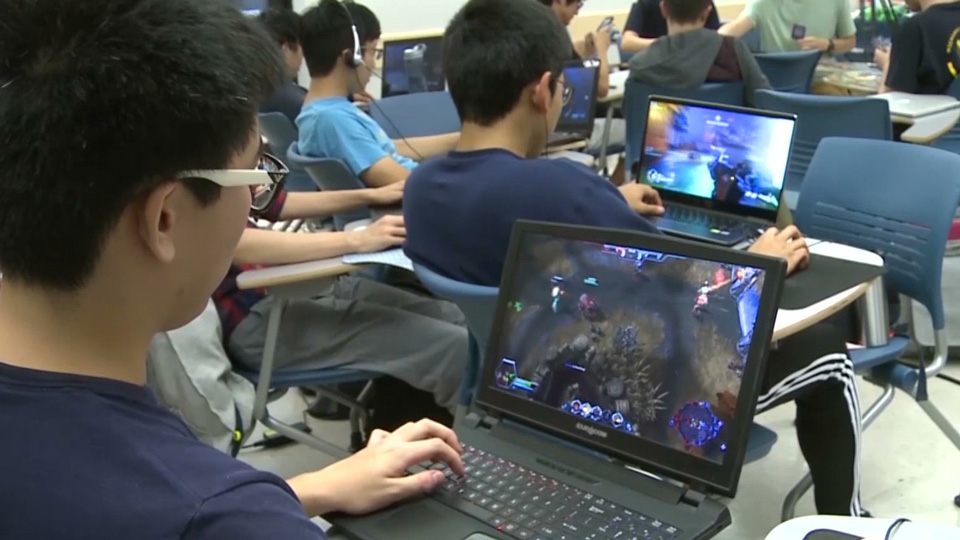The E-sports industry is expected to rake in more than one billion dollars this year, setting a new record. Professional games are frequently broadcast on major sports networks and universities are actually offering scholarships to top gamers. And like many other sports, high school is a critical training ground.
CGTN's Mark Niu reports.
03:18

At Miramonte High School in Moraga, California, the Esports club meets to practice their game-playing skills.
Team members are also studying gameplay recordings of their upcoming opponents from Las Vegas.
"We're gonna make a hole in this wall right here so we have a better angle on this door. So when they come from this side of the map, we can see them all the way from this side of the map and shoot them right there," said James Steichen, the Miramonte High School Esports Club President.
With 45 members, Miramonte's Esports club is thriving, despite originally being rejected by school administrators, until Steichen changed their minds.
Miramonte High School Esports Club President James Steichen said: "I told them a lot of colleges are giving scholarships for Esports now and it's actually pretty incredible what we have with Esports nowadays. Instead of what they think of people just playing video games in their basement. No, now there's actual stadiums full of people."
Miramonte's club is one of more than two-thousand Esports clubs across North America that competes against other teams online in the High School Esports League or HSEL.
I caught up with HSEL co-founder mason Mullenioux via skype.
"If you win the competition with us, you'll be awarded a scholarship. We helped facilitate last year about 16 million dollars in scholarships. Outside of that, we have a recruiting base of over 100 recruiters from across country that pull from our league," said Mason Mullenioux, the co-founder and CEO of HSEL.
With competitions live-streamed and recorded, university recruiters watch the action online, looking for Esports players fit for their teams.
"They are going and scouting as they would to a high school football game. If you display team building, anything actually outside of just playing, your ability to be coached, your ability to learn, your flexibility. Are you toxic Do you get angry, do you tilt Those are all deciding factors. We've seen coaches pass up higher skilled players for lower-skilled players because of that," said Mason Mullenioux, the co-founder and CEO of HSEL.
High School Esports League has even partnered with a principal and teacher to come up with an accredited curriculum called Gaming Concepts. It teaches students everything from team building to dealing with toxic online behavior. It also teaches gamer health, getting proper exercise and sleep. HSEL says it's already being taught in a handful of schools and is being considered by hundreds more.
"Like it or not, there's going to be a lot more jobs related to video games in the future because that's what millennials do. They want more video games. In some ways this is career preparation for the high schools," said Dean Takahashi, Lead Writer of GamesBeat.
HSEL isn't the only league in town. PlayVS has raised more than 96 million dollars in venture capital funding and also has thousands of schools competing in its league.
Upstart All-Star eSports League, started by a 17-year-old gamer, just received a seven-figure investment.
"If you look over at something like the NBA or NFL, NBA, 3:11 they have all this infrastructure that they've build up over decades. 3:38 Esports doesn't have that and I think if you create these structures underneath it, you can surface a lot more of the talent that's out there," said Dean Takahashi, Lead Writer of GamesBeat.
For Miramonte, studying and planning paid off, as their team handily blew away the team from Las Vegas.
Still none of the team members I spoke too envisioned becoming professional Esports players, saying reaching that level was just too difficult.
Club president Steichen says what's more important is that players like himself who have never been athletic enough to play traditional sports have finally found an activity where they can utilize their talents and win or lose as a team.
11 players pointing at the chalkboard discussing strategy.